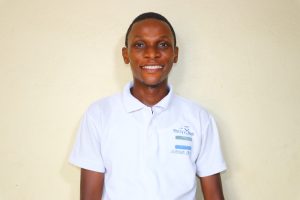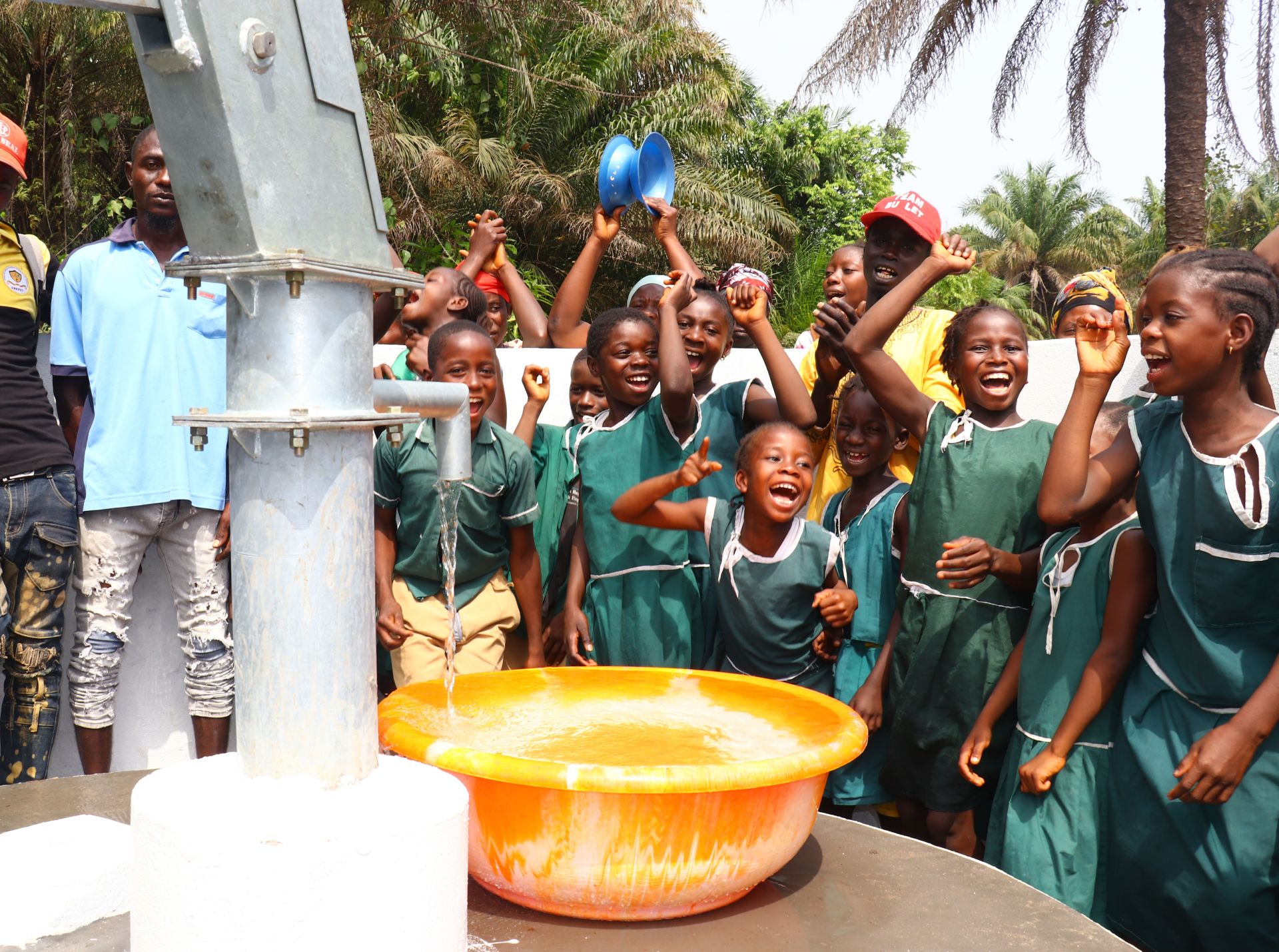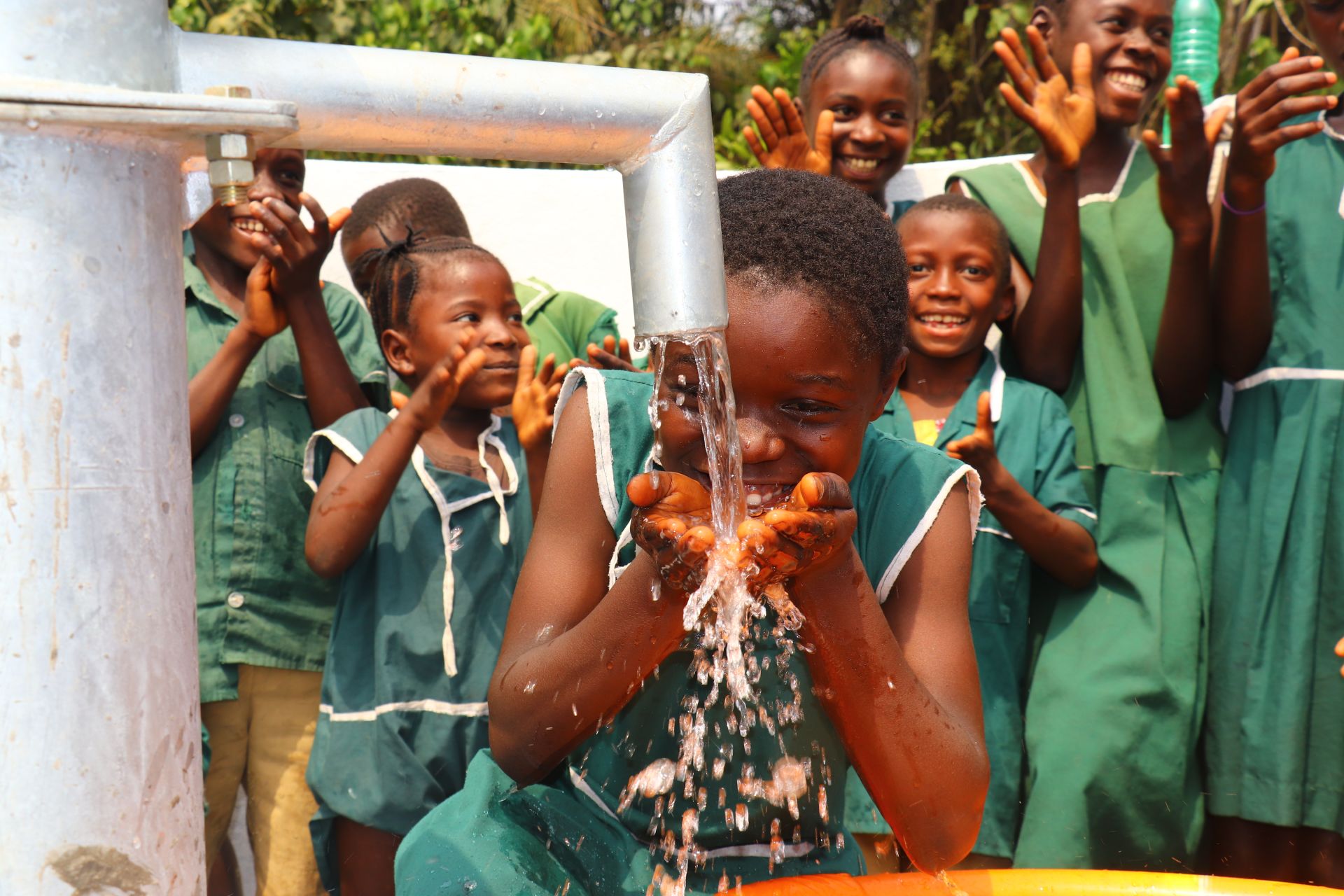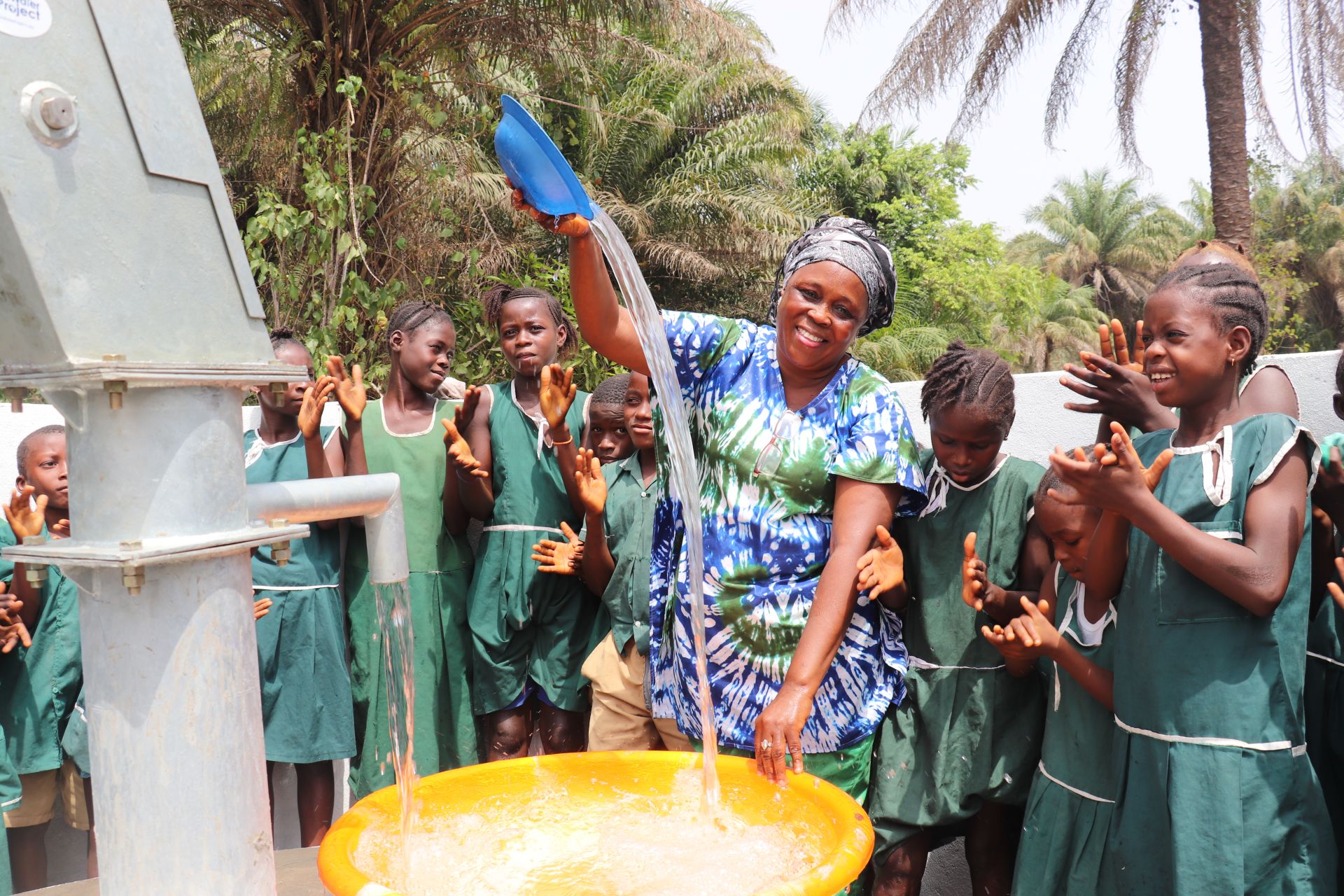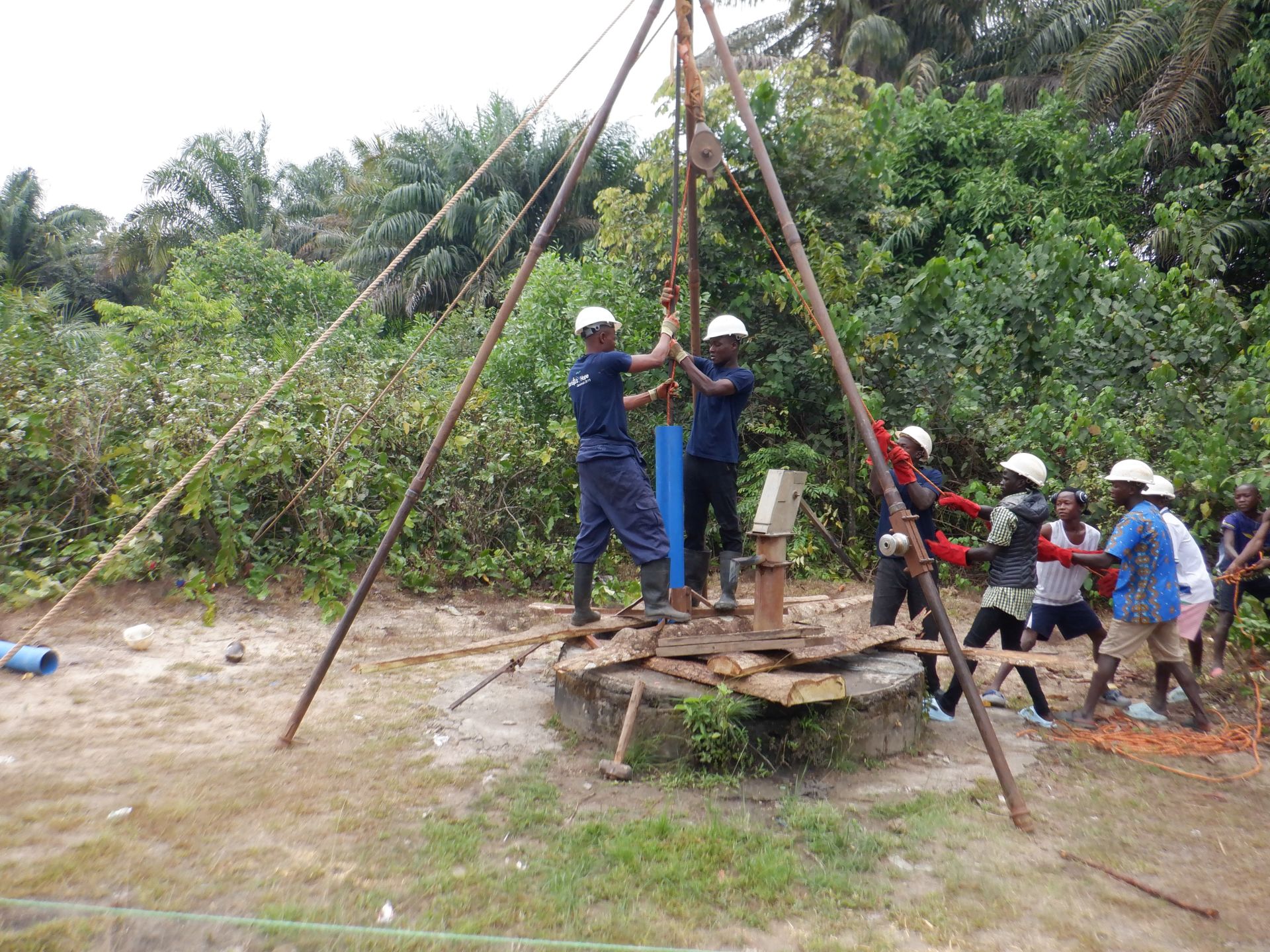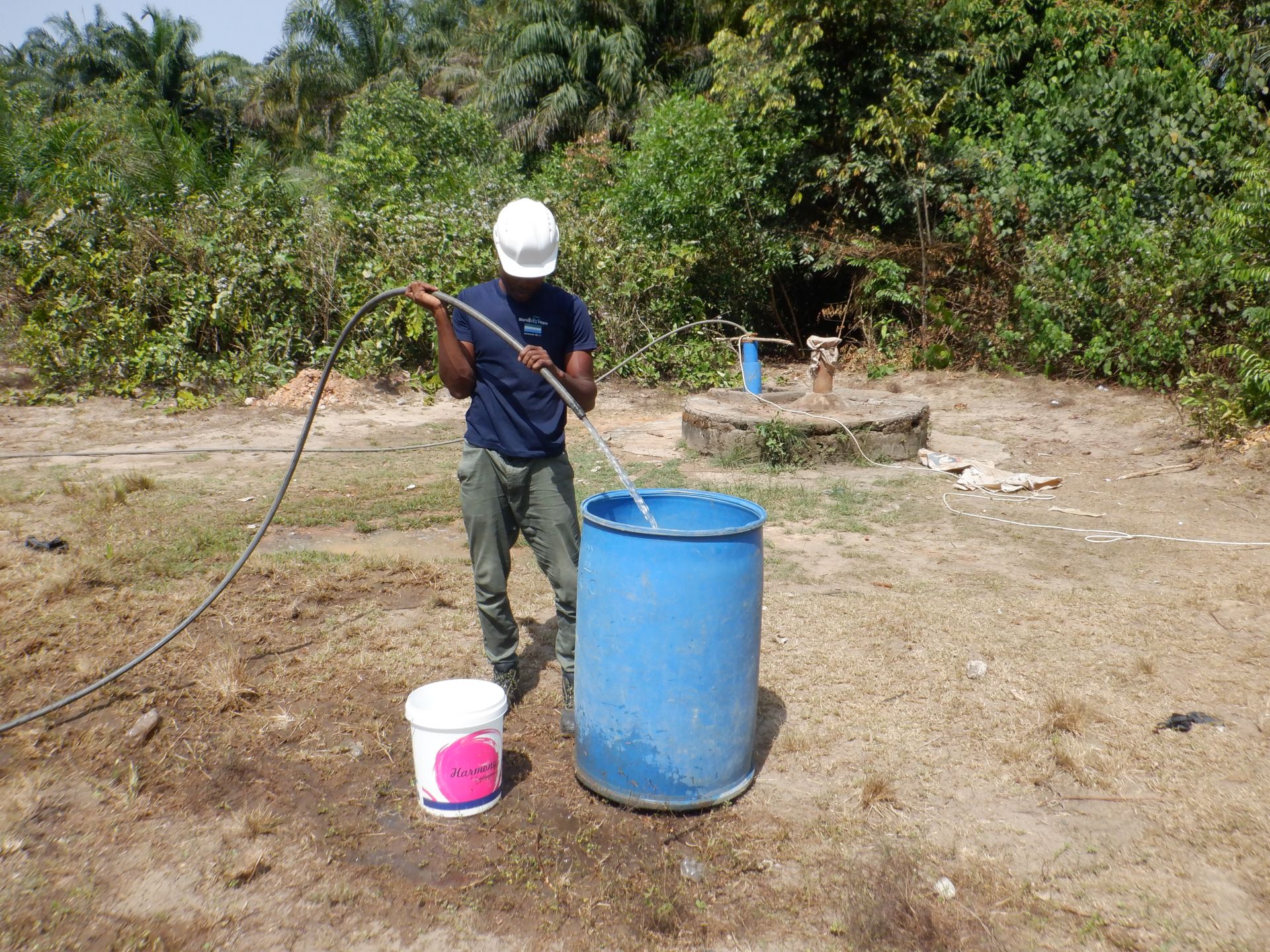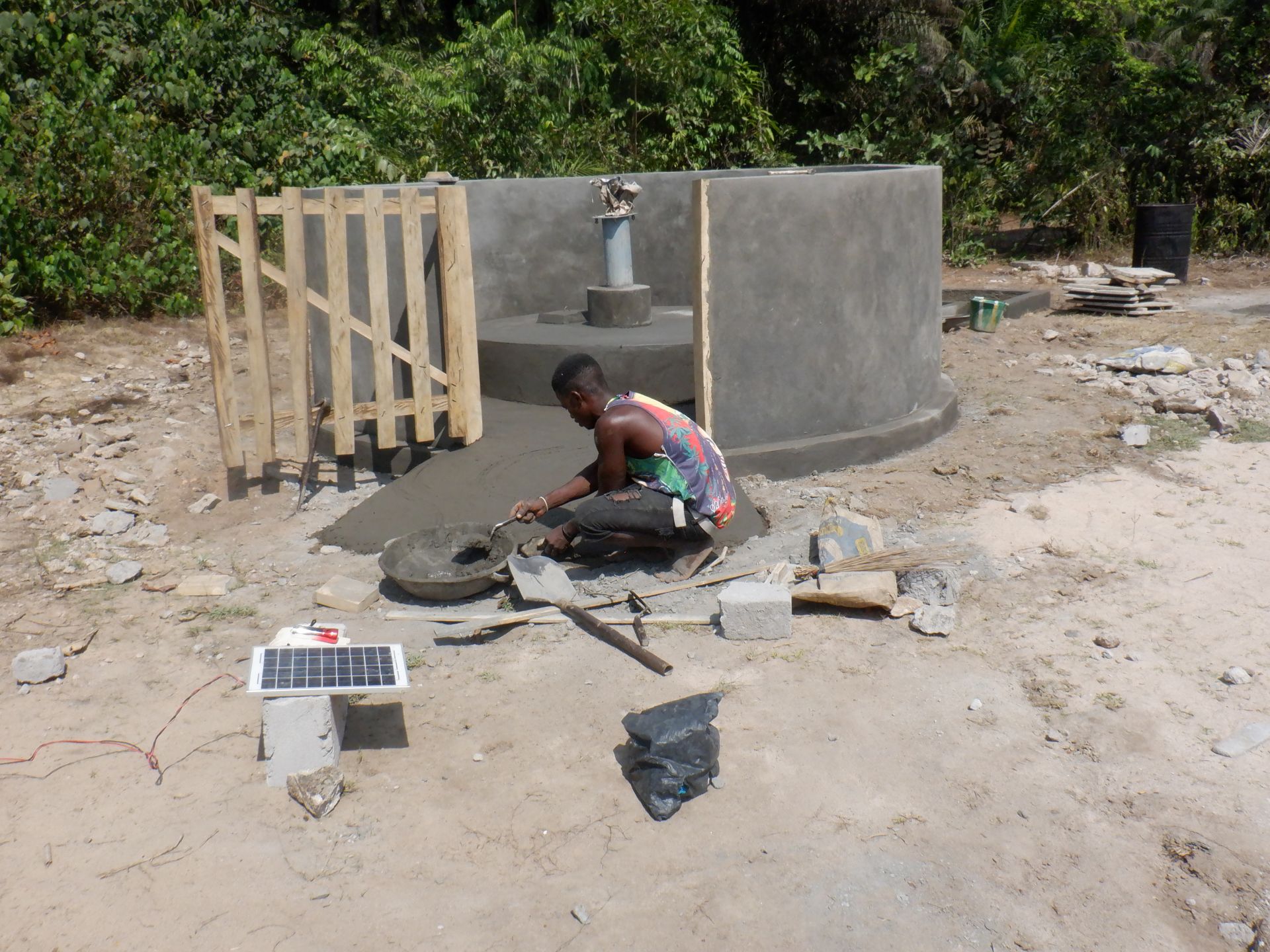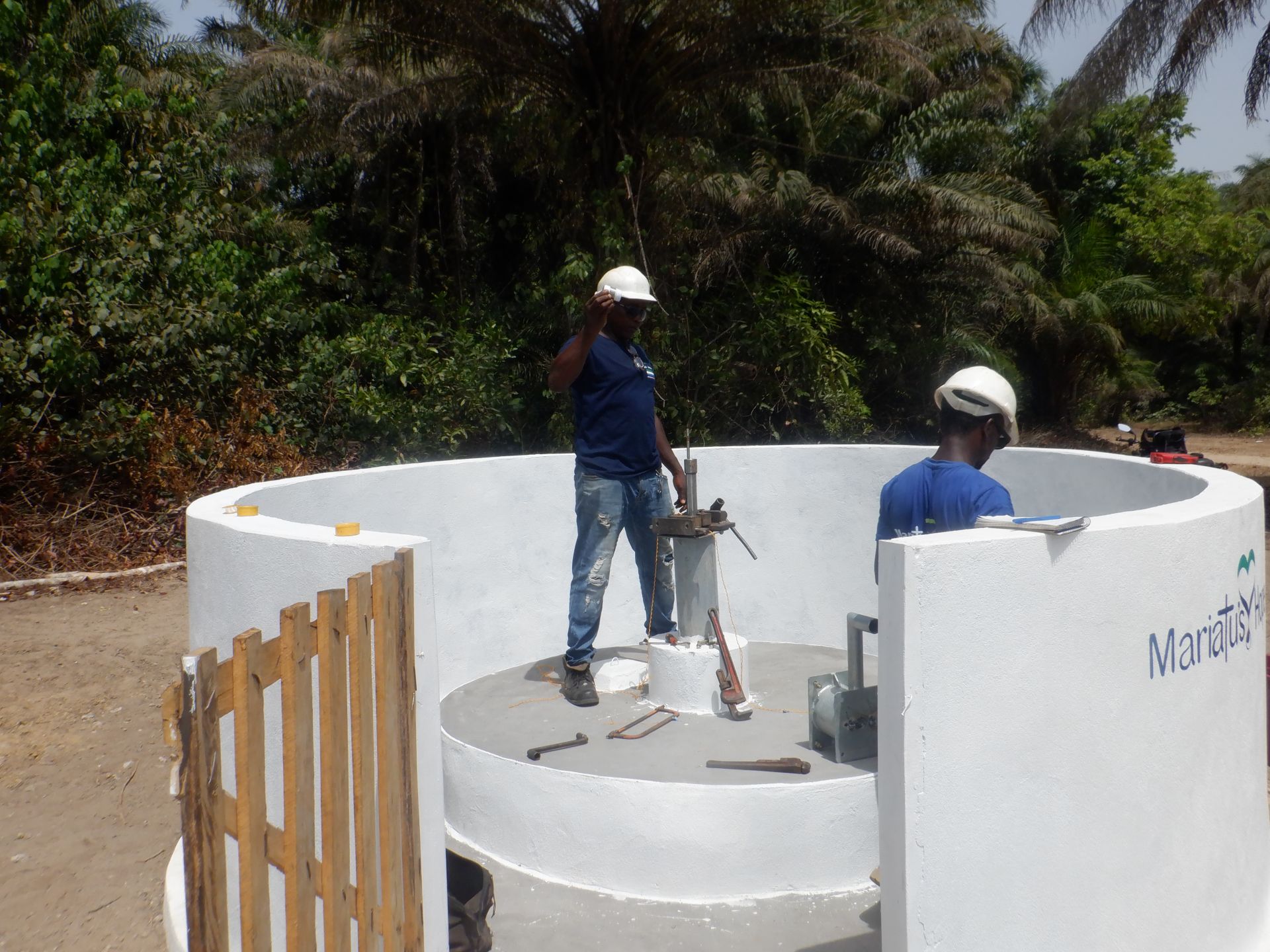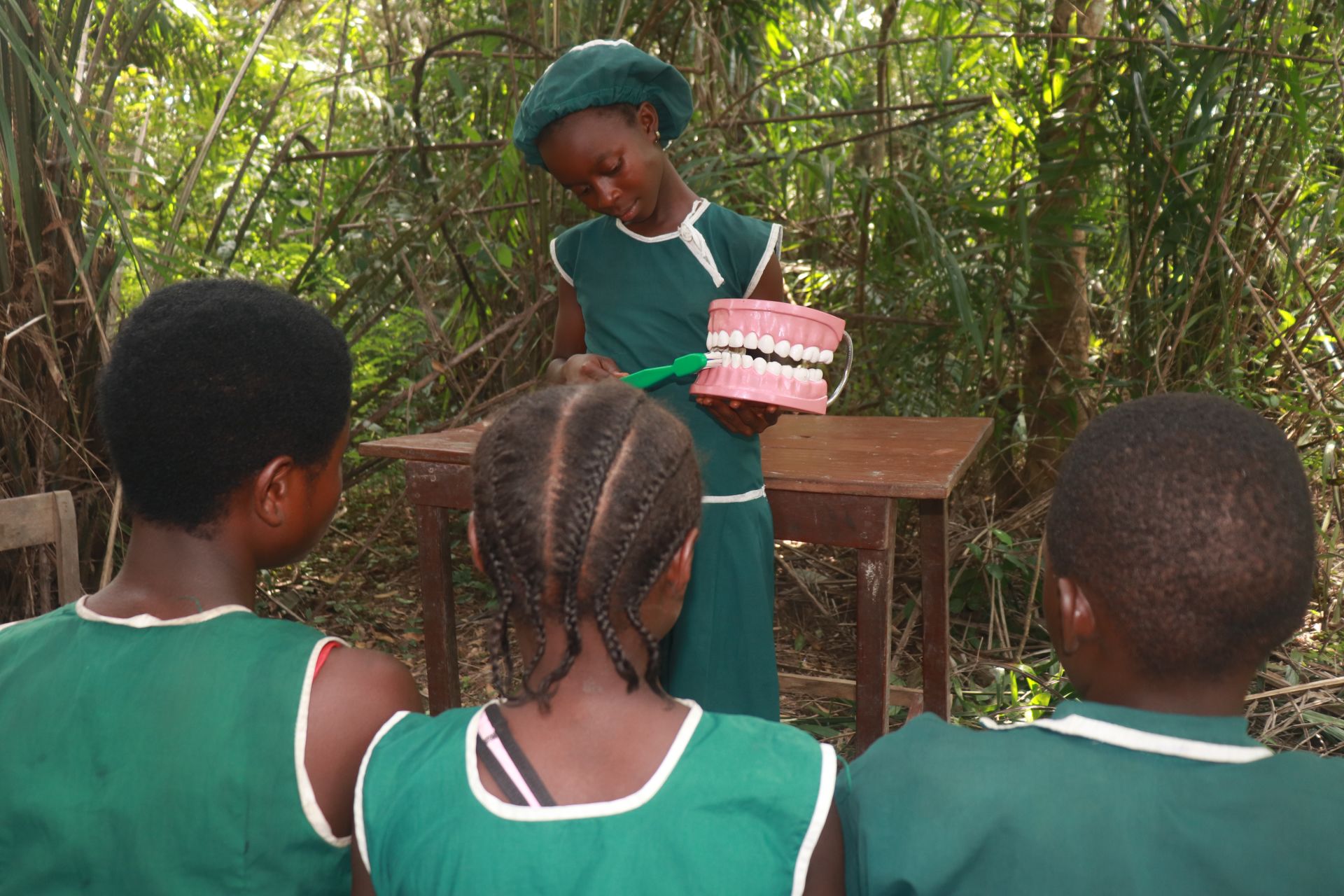The DEC Primary School began in 2005 to promote education in the Makempitha Community. It has grown to offer education to 189 students in grades one through six with a staff of four teachers. Several years ago, the government installed a dug well for the school, but for the past five years, it has been non-functional, and the school has struggled to have sufficient water.

The dysfunctional well.
Since the well is not operational, students and their teachers must expend tremendous amounts of energy each day to collect the water they need. They primarily rely on surface water they manage to collect from a swamp area that is far away from the school.

A student collecting water from the open swamp water source.
"There are a lot of leaves and grass seen around the waterpoint. I was not too surprised because the source is open to diverse forms of contamination, and a lot of agricultural activities take place around the water source," shared Field Officer Julius Sesay, describing the water source where children collect water.
Consuming the swamp water causes students to suffer from water-related illnesses that cause needless suffering and steal their health making it difficult to attend school.
"Diarrhea, bacillary dysentery, and typhoid are the common diseases that are affecting water users," said Julius.

Fifteen-year-old Isatu knows how much time and energy the task requires each day.
"Life has become unbearable since the well at the school grounds broke down. It has not been easy for me. Every day, I must visit the swamp at least five times. This makes me to be distracted. Especially when leaving classes to fetch water. I cannot live a normal life like my friends in other schools who have access to safe and reliable water sources. This situation even makes me feel discouraged even to come to school," said Isatu.

"The walking distance to the water point affects me greatly because the swamp is far away from the school. Most times, I will leave classes just to go fetch water from this source. The walking distance alone makes me to be tired," said Isatu.
Isatu is discouraged and exhausted. She misses out on valuable learning time, as well as time to be a child and connect with friends.
"The water situation in the school prevents me from even playing with my friends. Since I must fetch water for drinking and other purposes, even during lunchtime," Isatu said.
Isatu not only wants to spend time with her friends, but she longs to be in class because she dreams of becoming a nurse. Without access to safe water, she will be lucky to complete her primary education.
"I want to become a nurse when I grow up so that I will be giving treatment to my community. Presently, we have no clinic or trained and qualified nurse here. So, if I am able to be a nurse, the situation will change in my community," said Isatu.

Isatu carrying water.
"I see it as a burden because fetching water here is not easy for me. Even my friends know what I am saying. It is hard to fetch and transport water from the swamp. That is why I will be grateful when the well at the school is rehabilitated. [To] prevent me from the unnecessary suffering I am now experiencing," she concluded.
With access to a reliable water source, Isatu's future can be different, and the current burdens that weigh her down can be removed.
Steps Toward a Solution
Our technical experts worked with the local community to identify the most effective solution to their water crisis. They decided to drill a borehole well, construct a platform for the well, and attach a hand pump.
Well
Abundant water often lies just beneath our feet. Aquifers—natural underground rivers—flow through layers of sediment and rock, offering a constant supply of safe water. A borehole well is drilled deep into the earth to access this naturally filtered and protected water. We penetrate meters, sometimes even hundreds of meters, of soil, silt, rock, and more to reach the water underground. Once found, we construct a platform for the well and attach a hand pump. The community gains a safe, enclosed water source capable of providing approximately five gallons of water per minute. Learn more here!
School Education & Ownership
Hygiene and sanitation training are integral to our water projects. Training is tailored to each school's specific needs and includes key topics such as proper water handling, improved hygiene practices, disease transmission prevention, and care of the new water point. To ensure lasting impact, we emphasize engagement by students, staff, and community members to maintain their new waterpoint and implement their new knowledge, which encourages a sense of ownership and responsibility.
Safe water and improved hygiene habits foster a healthier future for everyone in the school and surrounding community.

 Borehole Well and Hand Pump
Borehole Well and Hand Pump









